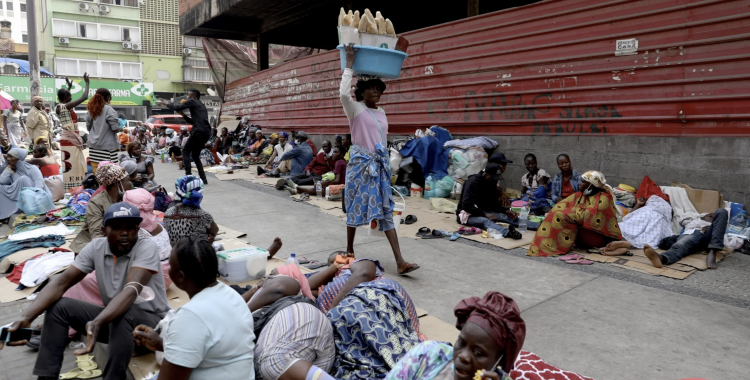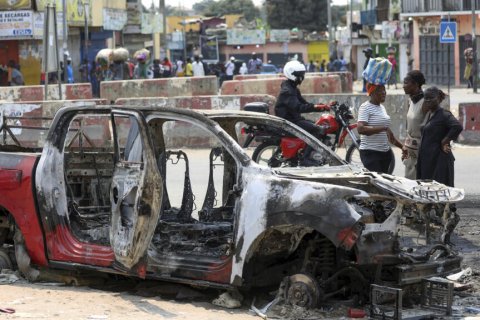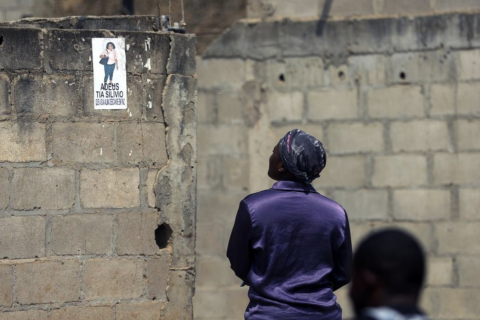Many patients who go to public hospitals die, not from the disease, but from a lack of care and due attention from health technicians, said some family members of patients, who spend the night at the entrance to Luanda's hospitals.
The lack of medicines and medical resources (gloves, cotton, diapers, syringes and others), of laboratories for specialized exams and even meals for patients force dozens of family members to camp next to hospitals to guarantee "help and solidarity" for their loved ones.
Maria Lopes, 41, told Lusa that she has already lost more than a dozen direct family members in the last 16 years in public hospitals in the country, not due to illness, "but because of poor care from health technicians".
"Today we don't have that security [in hospitals], at least I don't have it", said the manager who arrived at Hospital do Prenda in the early hours of the day to visit a brother hospitalized there and until close to 10:30 am she had no information about his condition.
Sitting on cards scattered on the main sidewalk that gives access to the hospital unit, flanked by dozens of women who spend the night there, exposed to the cold and other risks, Maria said that the "lack of love", communication and dedication of health professionals forces family members to stay outside hospitals for long days.
"It's easier to be here, closer to my brother, give me some time, for example, if they need anything, because normally it's like that in hospitals, because sometimes there's no dipyrone [medication], sometimes there's no gloves and other things", she said, while other people nearby nodded their heads.
Because "they (doctors and/or nurses) don't always say (that there is a lack of material), but sometimes they stop responding because they don't want to ask and the person ends up dying. To prevent this from happening, we stay here for prevention, just to this," she emphasized.
After recounting the drama of her nephew who died last year in a public hospital in Viana, after not having been treated for three days, and of others who died in similar circumstances, Maria deplored access to healthcare in Angola.
"It's one of the worst, because every day when I look at the hospital units, today we have some of the best being opened, with cutting-edge equipment, but what we lack are human resources (...). We have lost many lives because there is no love, there is no love for the profession and people", she lamented.
Maria Inácio, 52 years old, also complains, as she has been with her aunt at Hospital do Prenda for almost a week, during which time she has spent the night nearby to answer any calls from family members.
She said that sometimes they allow her access to the admission room, moments that she uses to change the patient's diapers, to feed her and even to buy some of the prescribed medicines.
"We have to stay right here, in the cold, we've been sleeping here since last Sunday", she stressed.
Also exhausted by the treatment at Hospital do Prenda is Mahula Armindo, 39, who, at the end of last April, broke his right arm.
In search of care, he went to this hospital at 10pm, but was only seen at 2am, without any painkillers being administered to alleviate the intense pain he felt.
Mahula, an employee of a communications company, has been waiting for two months for a new appointment and remains with his arm in a cast, lamenting the lack of information that contributes to worsening the health condition of many patients.
"There is also the issue of delay, just to make the first appointment I was already there for four hours waiting and on the day of the appointment you can get there at 7am and only leave the hospital at 5pm (...). I think we have hospitals good, but the staff is not good", said the patient, who, as a resource, began treatment in a private clinic, where he says he is treated humanely.
At the main entrance to the headquarters of the Ministry of Health, on Avenida Amílcar Cabral, in the center of Luanda, dozens of citizens transformed the sidewalks into dormitories, a space they found to stay while they waited for news from their families, admitted to the Josina Machel Hospital.
This hospital unit, one of the largest and oldest in the country, receives patients from several provinces, whose family members also report difficulties in accessing the hospital unit.
"This arises because people inside [the hospital] don't pay better attention to patients, because at least one patient would be there accompanied by a family member, but that doesn't happen and we have to be outside and that's bad," said to Lusa Sara Mariano.
The 64-year-old retiree, sitting on one of the sidewalks of the well-known unfinished building in Maianga, pointed out the need to improve access to medical and medication assistance for citizens.
"There's a lot left to improve, because, for example, the person goes for an appointment and doesn't have medicine, they have to look for it outside the hospital and, in this case, many of us are unable to buy medicine, it's complicated", she said.
Until close to noon, more than a dozen people, including men and women, worried about the health of their loved ones, were still resting in a deep sleep on top of cardboard.
Luzia António Manuel, 32 years old, had to go to the Augusto Ngangula Maternity Hospital, in the urban district of Ingombota, to help her younger sister, who was pregnant, who needed an out-of-hospital ultrasound.
"We stayed here because the technicians called us to do an ultrasound (...) and then we had to go here to Bairro Operário, to a private office to do the ultrasound", she explained, remembering that such movement could put the health at risk. life of the pregnant woman and her baby.
Lusa also tried to contact an employee, who refused to speak due to lack of authorization, and the medical team on duty at Ngangula, but security personnel did not allow access to the maternity ward.







